Subscribe to Our Newsletter
Stay updated with the latest tips and strategies. Get additional discounts and alerts on offers.
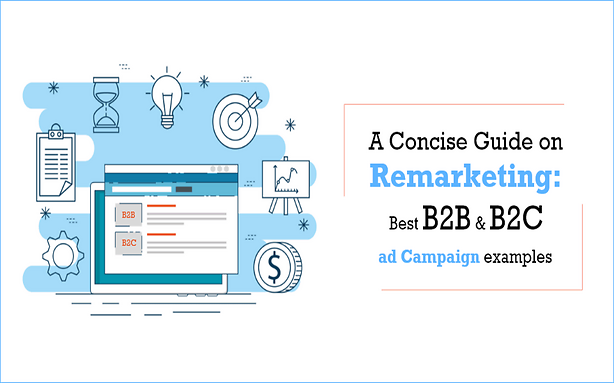
According to a survey done by MailChimp, it turns out that 97% of the new traffic who visit a website for the first time without taking action never revisits the site. Unless they are brought back using a commercial or an ad. As sales and marketing go increasingly online every passing year, brands have now started to track, locate, target, nurture, and convert that 97% of the traffic using various marketing strategies.
Remarketing is one such phenomenal marketing policy that is taking the digital marketing ecosystem for a spin.
“Although a user becomes somewhat less likely to click on a remarketing ad over time, those who do click are more than twice as likely to convert.” – Larry Kim (Founder, VP Marketing, Mobile Monkey)
Remarketing, or Retargeting is a universally common digital marketing practice carried on by marketers to acquire clients who are already familiar with the brand or company by tactfully serving targeted ads. Technically, this is done by placing a cookie into the user’s browser by adding a JavaScript tag, also known as a pixel.
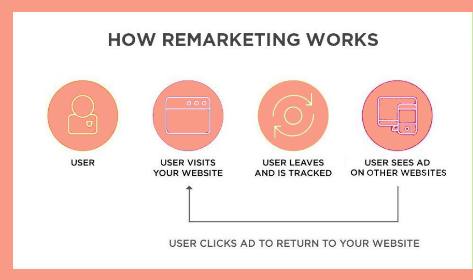
What does remarketing bring to the sales table?
Remarketing is beneficial for both the audience and the business. Remarketed ads increase the possibility of your visitor clicking to the landing page and taking action. This drives sales on web pages, promotes brand awareness among engaged audiences, and ultimately increases your ROI.
The graph below shows the impact of remarketing on the conversion rate
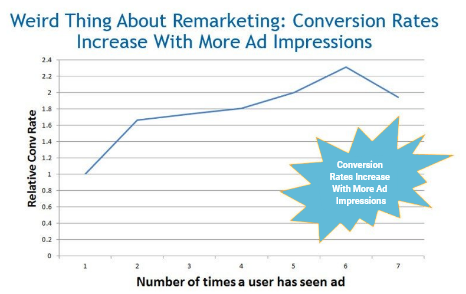
Remarketing attracts visitors by creating a desire and facilitates their transition to the next step of the sales conversion funnel. If a visitor leaves the website without taking any action, an immediate retargeting ad can lead the visitor back to the product page, further paving the way for buying. This move has the potential to incentivize traffic into increased revenue.
#Fact – Website visitors who are retargeted are more likely to convert by 43%. [Source: Criteo]
Remarketing fits into the preferences and needs of each user. Personalized remarketing ads provide increasingly relevant offerings that raise the chances of re-engagement. Dynamic advertising automatically adapts content, layout, portal, and promotion style specific to each user, ensuring that each user is exposed to the most relevant content. They both fused together to increase the richness of marketing campaigns, resulting in deeper user engagement and higher marketing ROI.
#Fact – The CTR of a retargeted ad is 10x higher than that of a typical display ad. [Source: Wishpond]
Remarketing increases conversion by 25%, as customers who see retargeted ads are 70% more likely to convert to your website. This is a result of the CELL PHONE THEORY, coined by Duke University. This claims that when users are busy strolling across multiple platforms, they subconsciously consume information around them. What that means for you is that it’s highly likely people will remember your company by merely remarketing to them.
#Fact – 91% of marketers have found remarketing to perform better than display ads. [Source: IAB]
As the number of marketing platforms multiplies every day, businesses benefit from reaching out to users across various media. The modern-day customer is exceptionally conscious and specific about their user experience. Brands are increasingly establishing interpersonal relationships with their audience by satisfying their buyer-psychology. It increases visibility and top-of-the-mind awareness for the brand and makes users integral to the brand’s business ecosystem—personalized, relevant, and timelier content up the online experience.
#Fact – – 47% of consumers say that they would sacrifice privacy to get a better deal. [Source: Pew Research Center]
Remarketing can be broadly classified into five primary categories
Standard remarketing encompasses search remarketing, display remarketing, and social media remarketing.
Search remarketing
Ads are shown at the top of the search engine when someone who has already visited your website searches for specific keywords.
Display remarketing
Ads are shown as display ads on other websites within the Google display ad network.
Social Media Remarketing
Leveraging Social media platforms like Facebook, Instagram, LinkedIn, Pinterest, and other portals to serve ads to people who have visited your website.
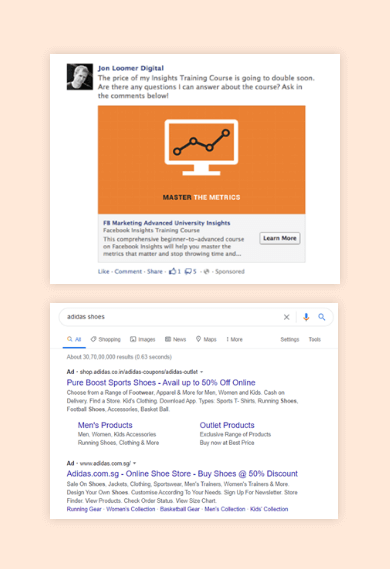
Dynamic remarketing displays ads to your previous visitors with products or services that they viewed on your website but did not take action on. These ads are tailored explicitly around their buyer behavior and include customized messages. If a visitor spent some time on the pricing page, a dynamic remarketing ad must center around pricing, maybe offering them a free trial offer or a discount.
Ecommerce website dynamic remarketing ads should include the shopping item(s) left on their cart. Dynamic remarketing can also show ads to visitors who browse your blog site and persuade them to buy a related product or service.
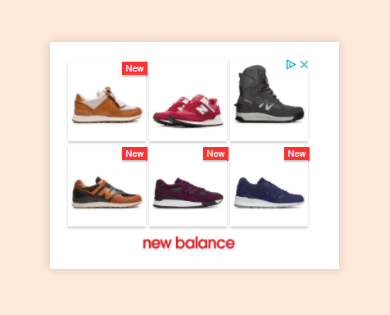
A product ad being remarketed to a user based on the browser history
ABM campaigns are a form of dynamic retargeting. It is a focused approach to B2B marketing in which high-value best fit accounts are targeted through various dynamic remarketing strategies to them into customers.
DataCaptive™’s ABM campaigns have boosted the sale returns of 70+ companies by 4X, globally.
Offered exclusively by Google AdWords, this strategy allows you to customize your search ad campaigns for visitors who have been on your webpage. Google lets you tailor your bids and then shows ads to visitors on google or other partner search sites. This is for visitors who exit the website to look for similar solutions in the search engine.
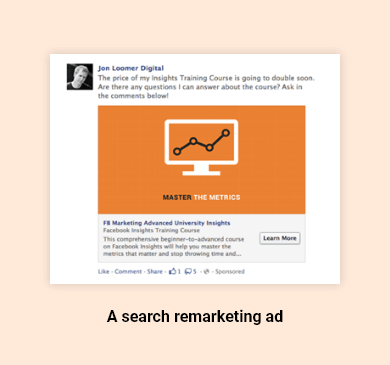
In video marketing, pre-roll video ads are shown on YouTube and their social media platforms to people that have previously visited your site or have recently seen your videos. Display remarketing ads on YouTube are played at the beginning or in-between videos with potential customers where they can skip. You can also display remarketing ads on the right-side along the line of video suggestions.
Social media marketing and Google AdWords give you access to the log-in details of your customers. Customer List Remarketing shows them ads across different websites or on their social platform when they sign into Google or that specific social media site.
Email marketing enables you to identify and nurture prospects better. Email retargeting is not only affordable but also convenient to communicate with a large customer base. There are two techniques for email remarketing –
Build a stronger business network today!
HubSpot targeted small- to medium-sized businesses on LinkedIn by creating sponsored content to appear on their target audience’s newsfeed. This was informative for the clients, as well as brought new leads to HubSpot. It resulted in 400% more lead generation.
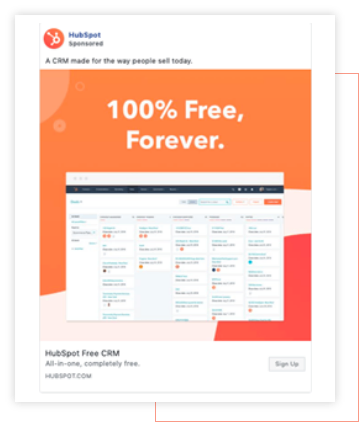
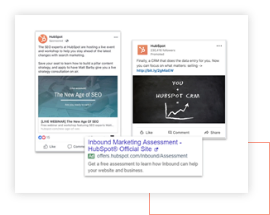
Drift is a “conversational marketing” platform that uses chatbots and customized marketing to help businesses connect with potential customers, gather leads, and convert sales.
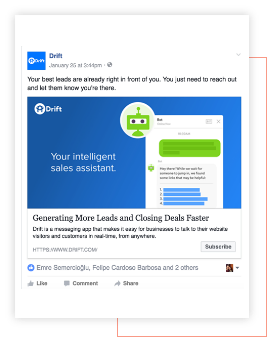
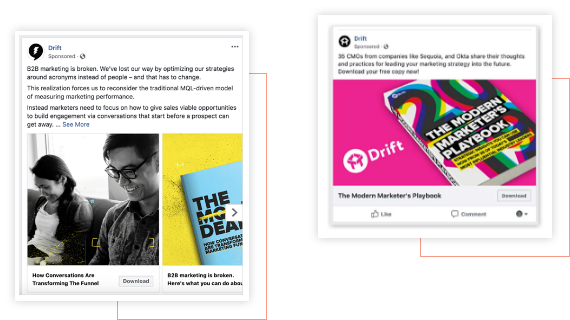
It was a fun video posted on their Facebook handle, which got many clicks and website registrations. To view the full video, visit – Shopify Remarketing
To view the ads, visit this link
Upwork’s “Hey World” campaign tapped into the pop culture world and reached millions of target audiences. This resulted in a 10% increase in registration and sale since the campaign launched.
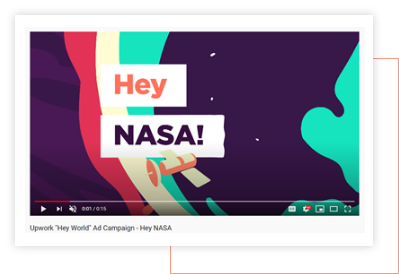
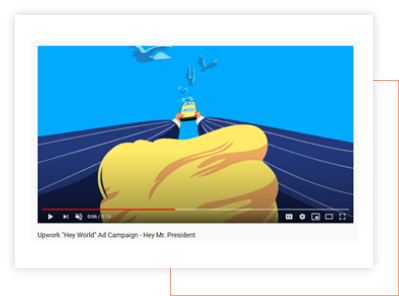
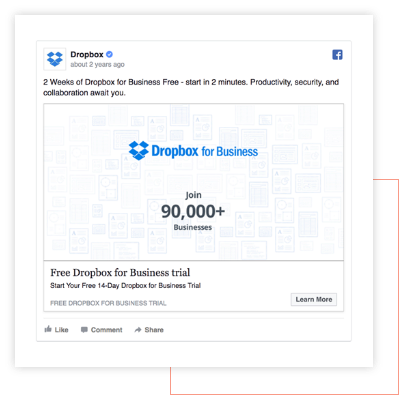
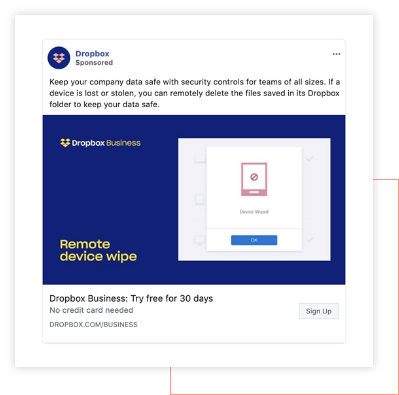
Show Some Love!

Subscribe to Our Newsletter
Stay updated with the latest tips and strategies. Get additional discounts and alerts on offers.
Related Articles
Subscribe to Newsletter
Stay up to date with the latest marketing, sales, and service tips and news.
